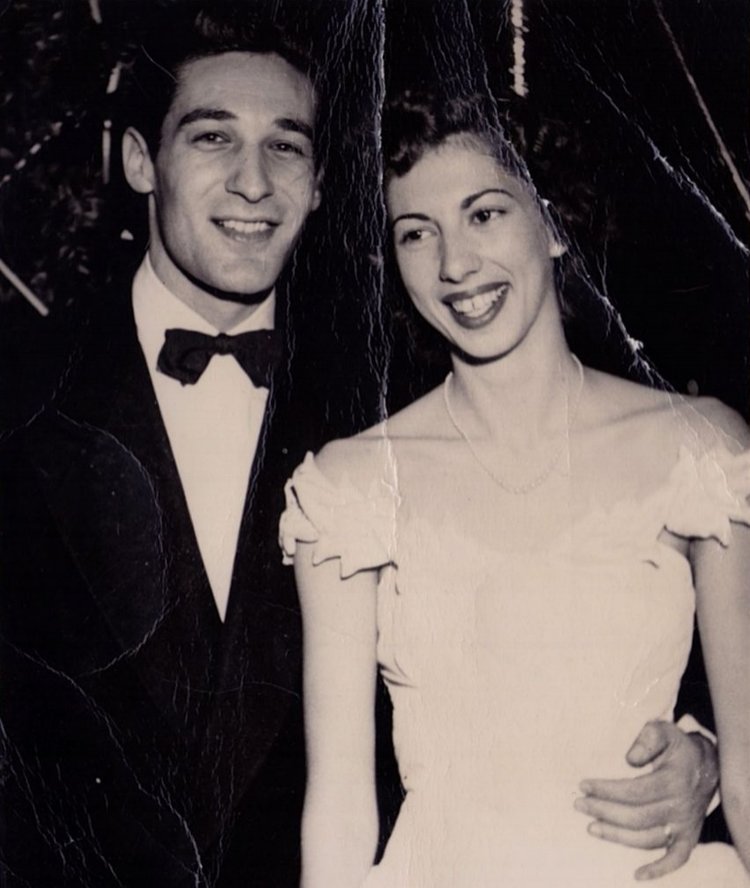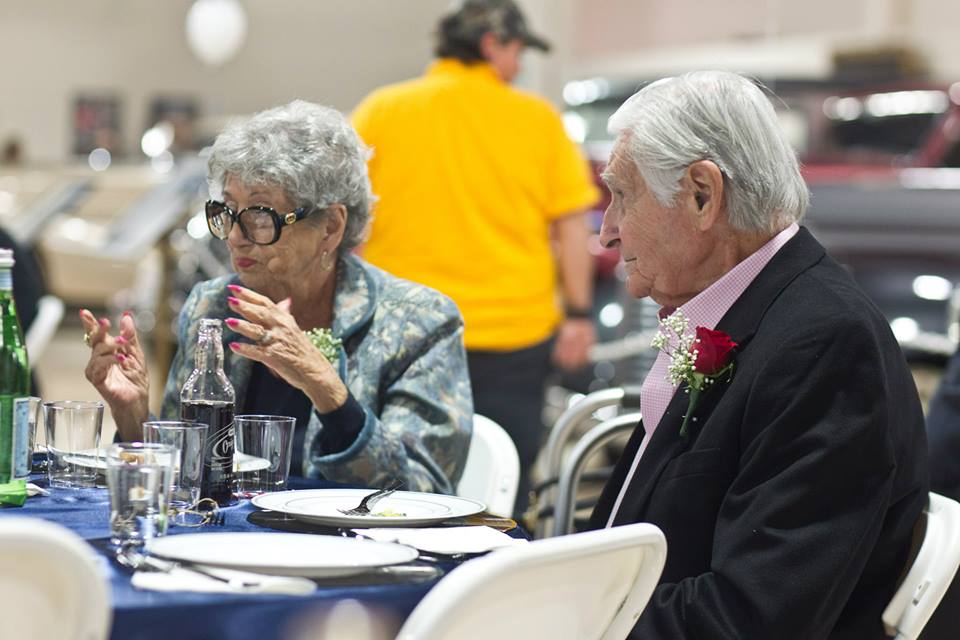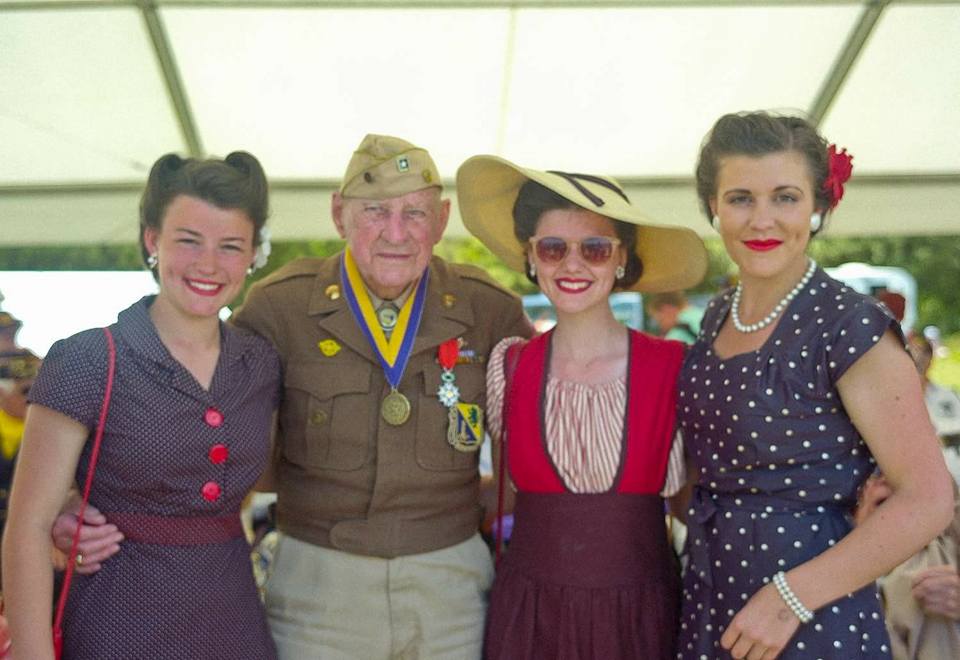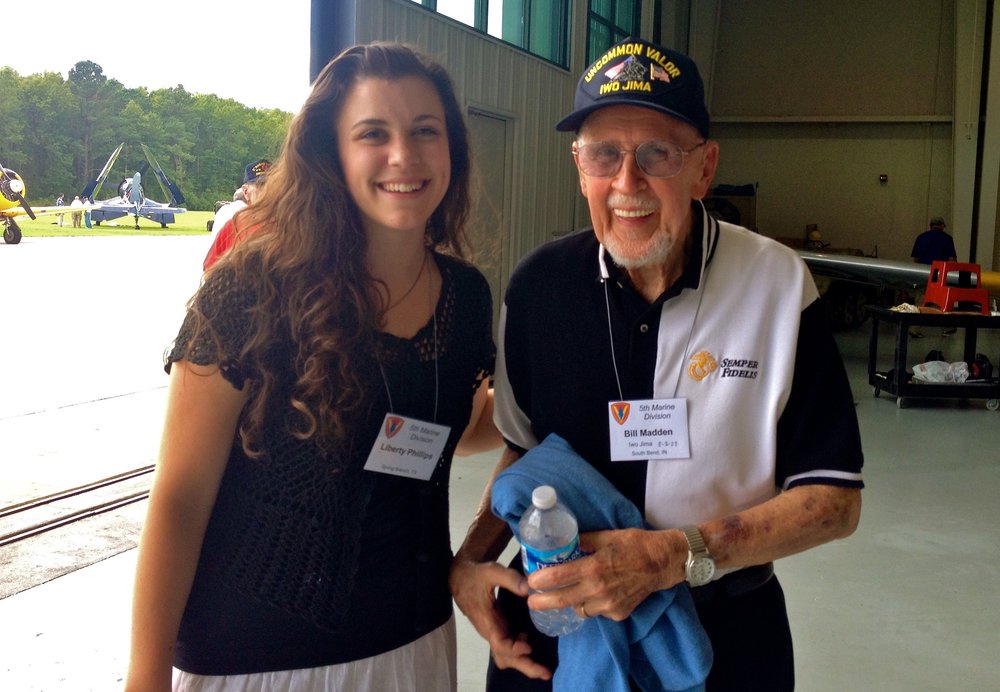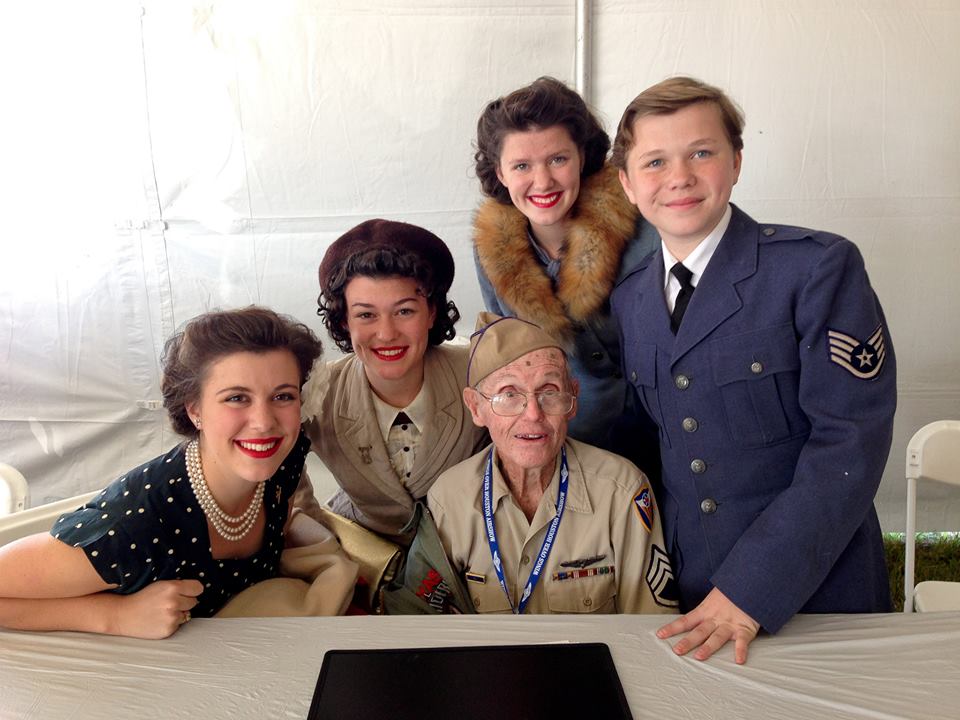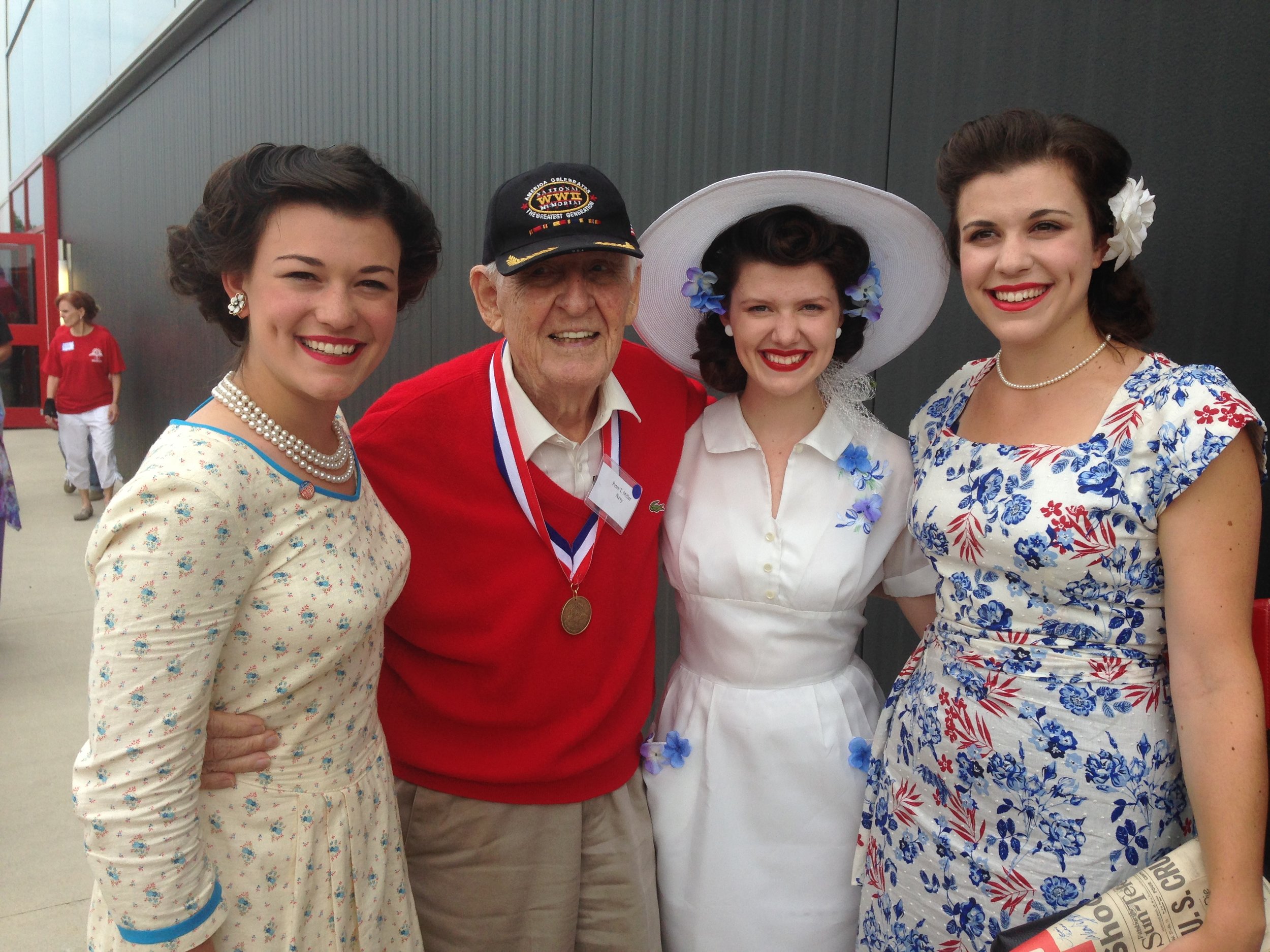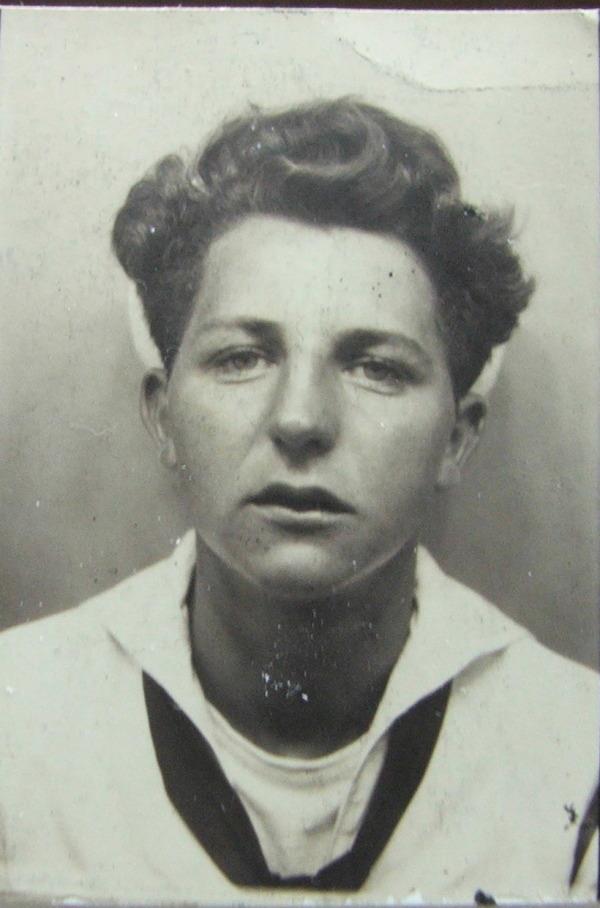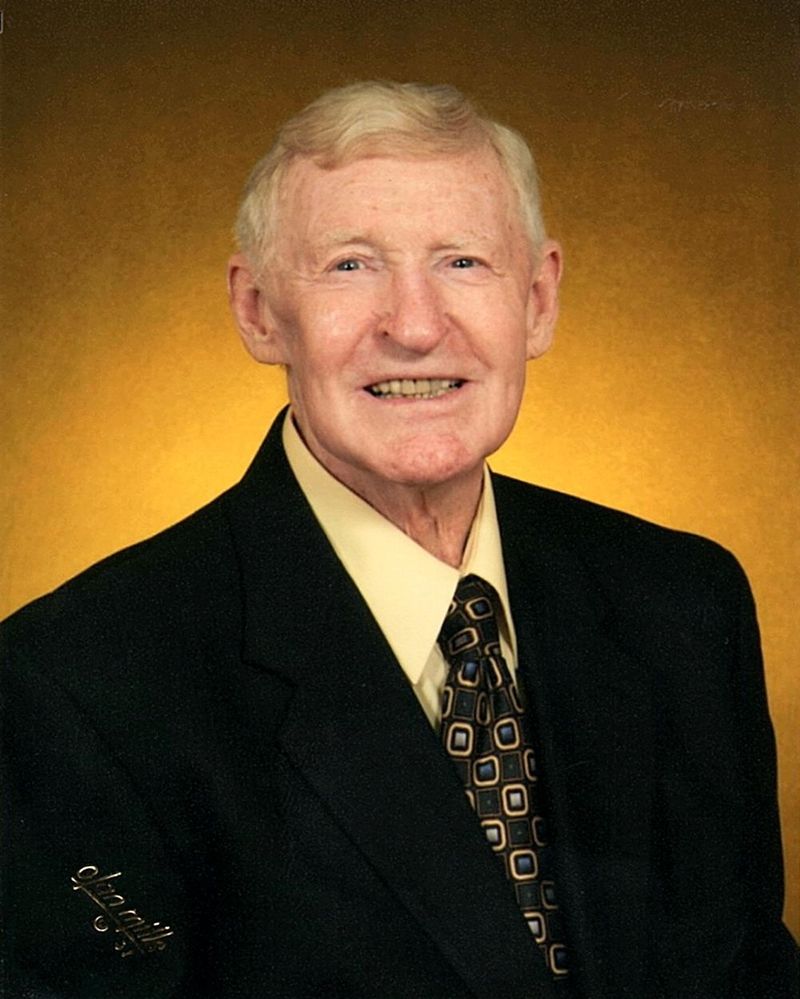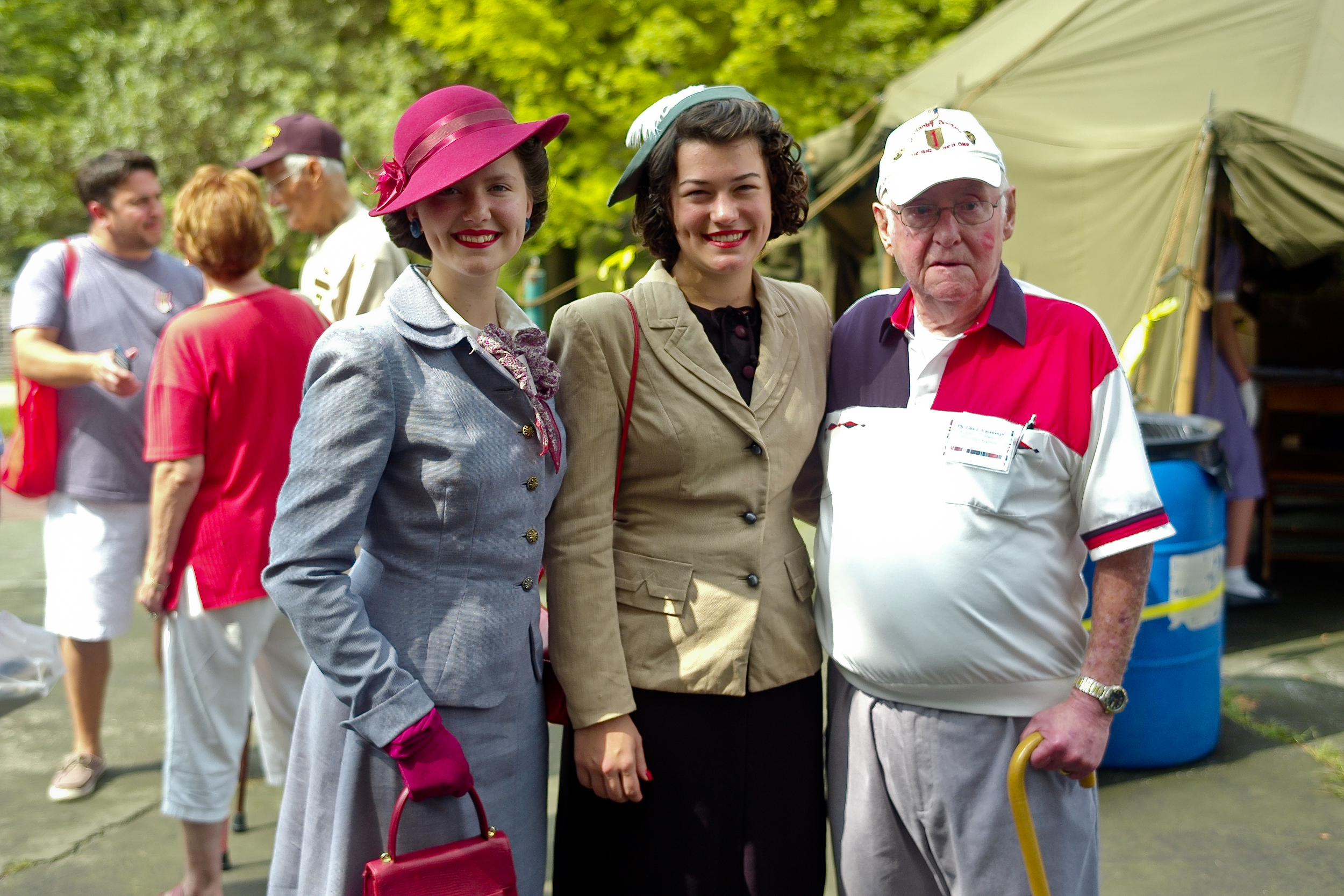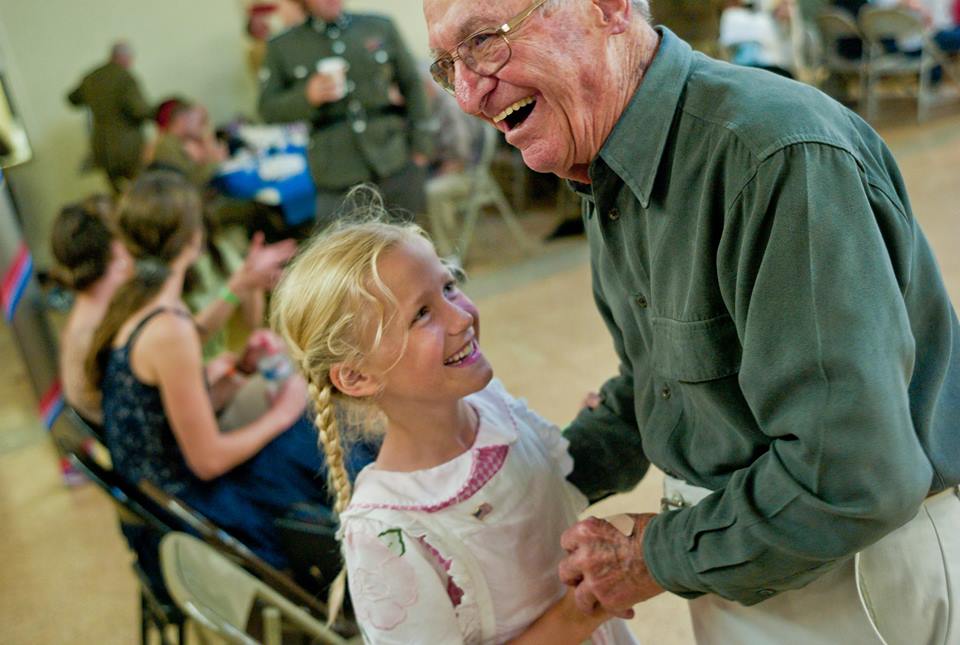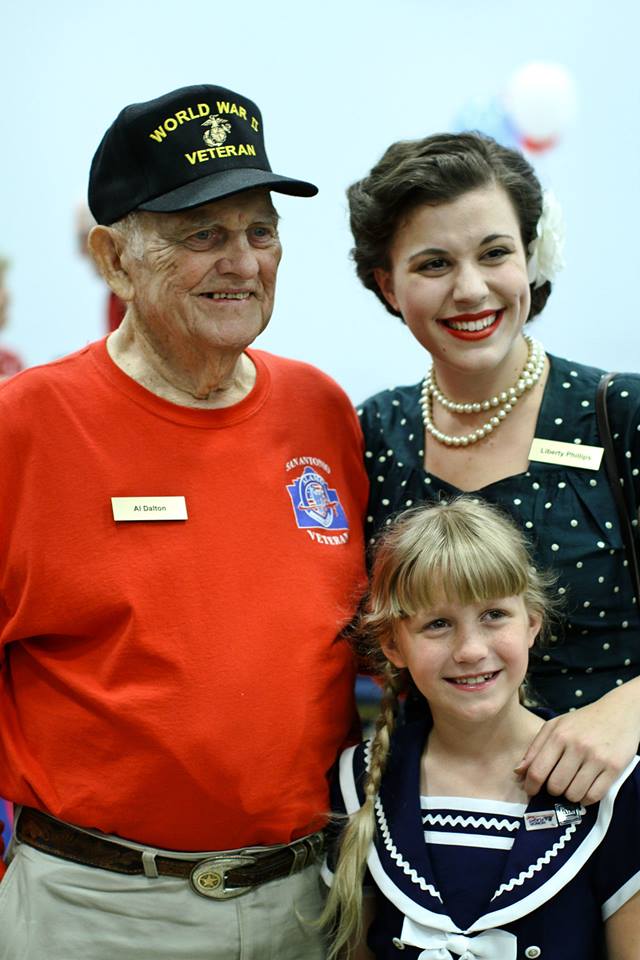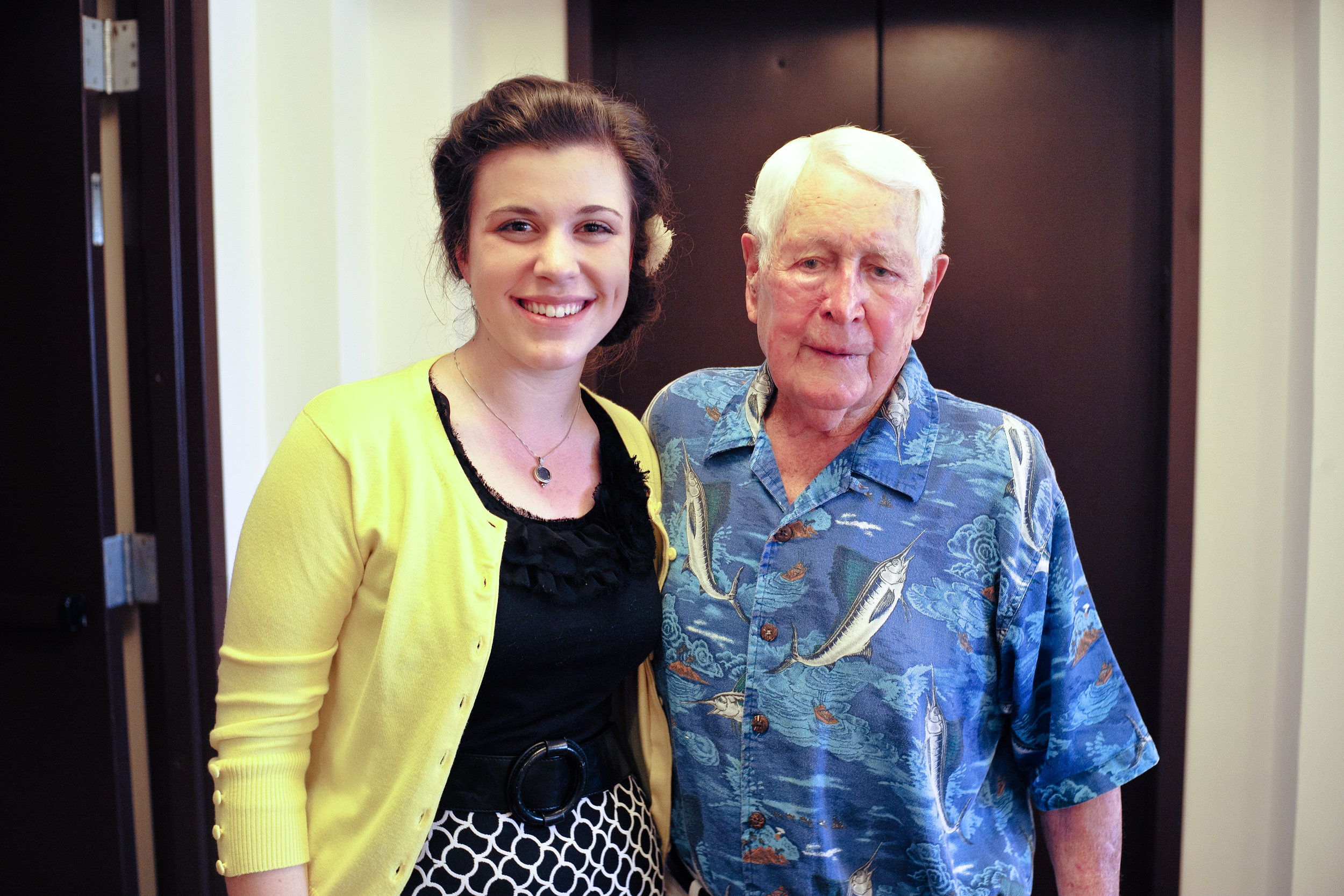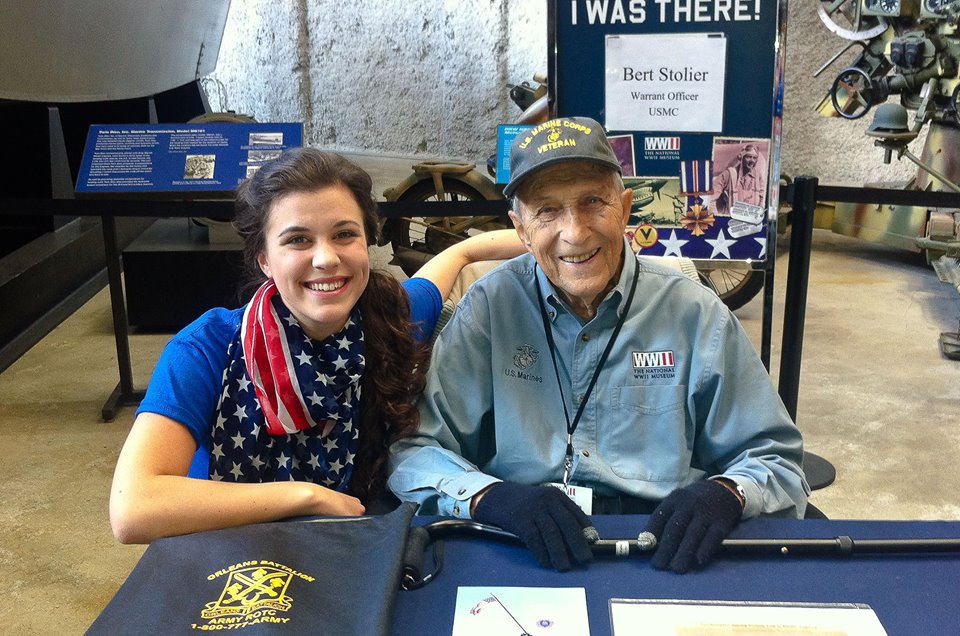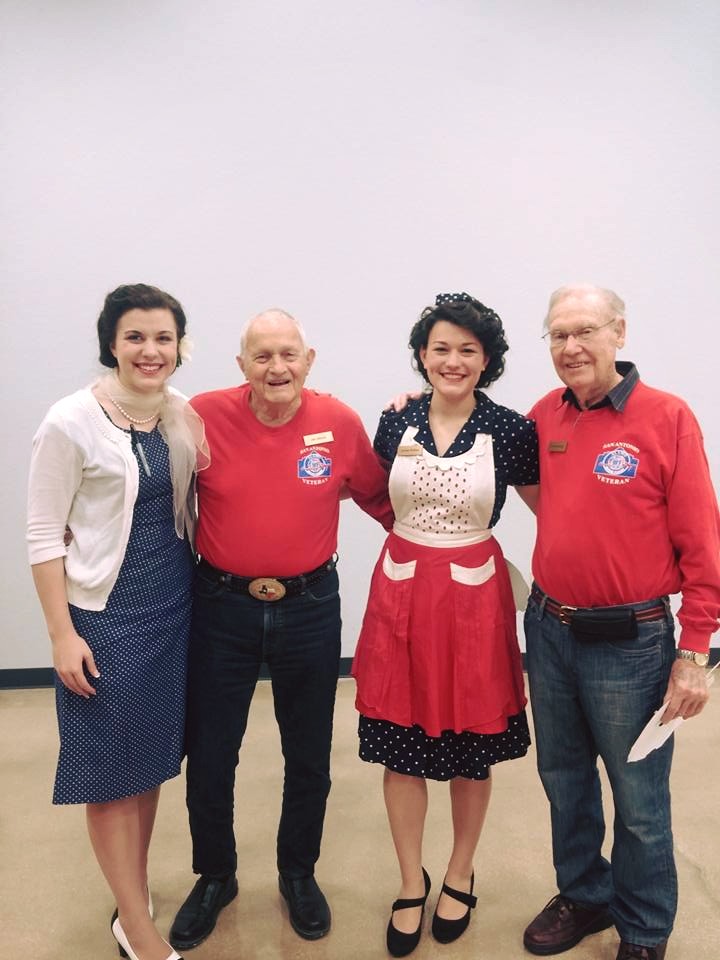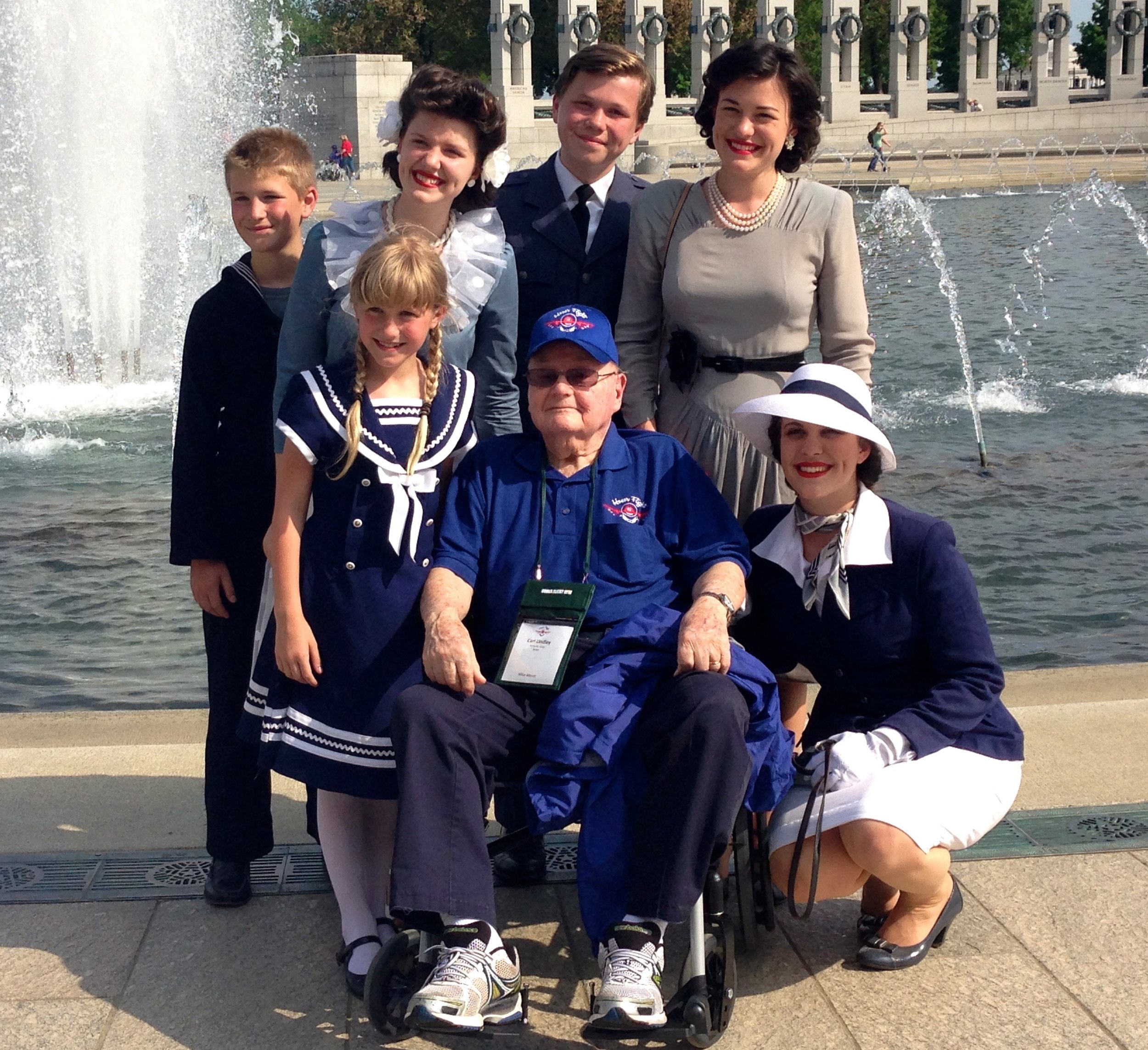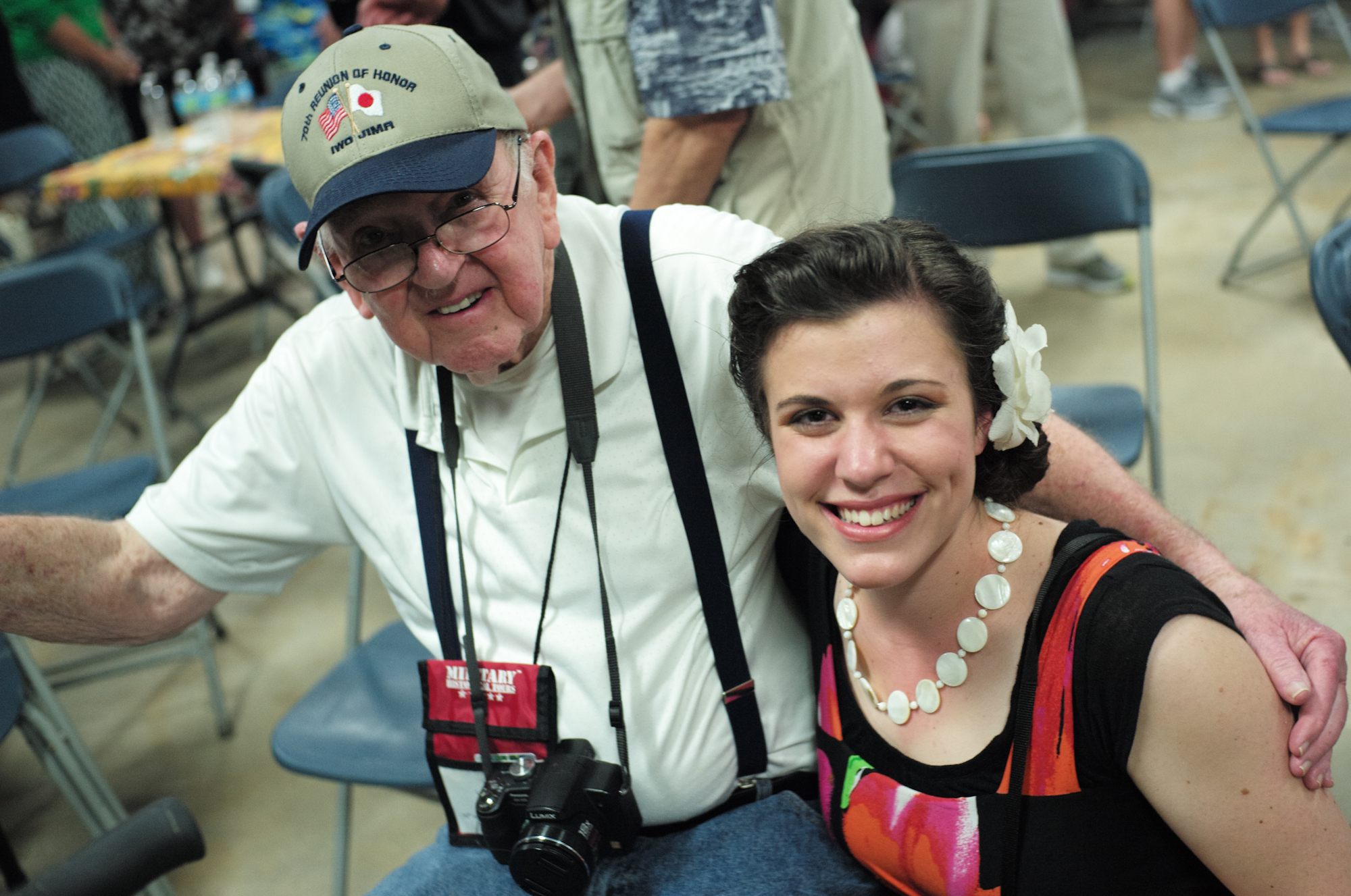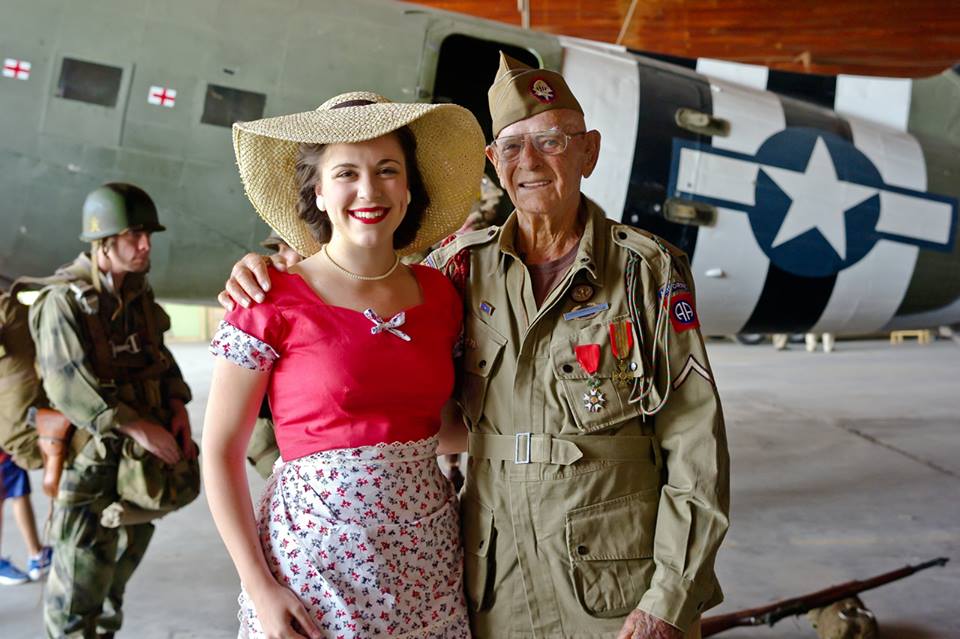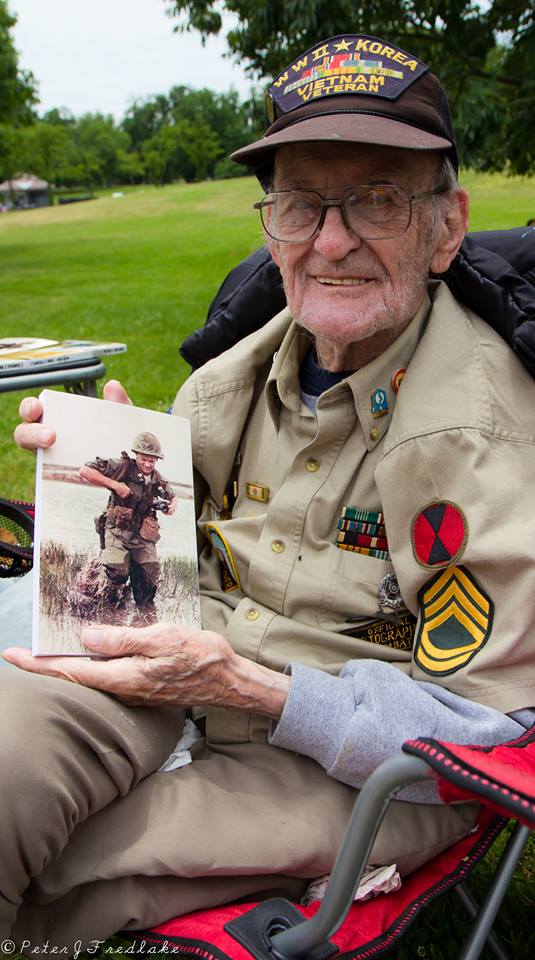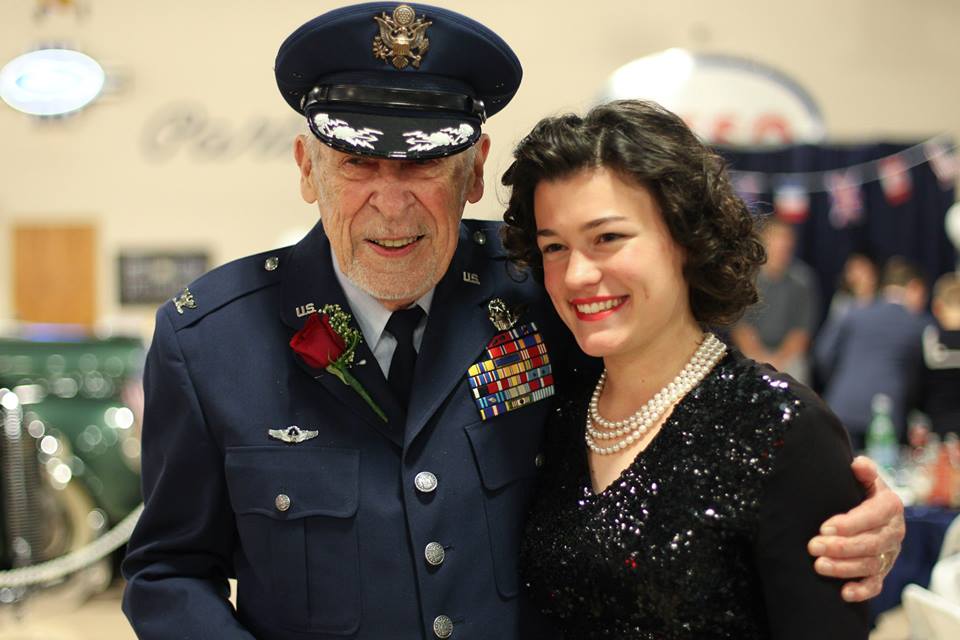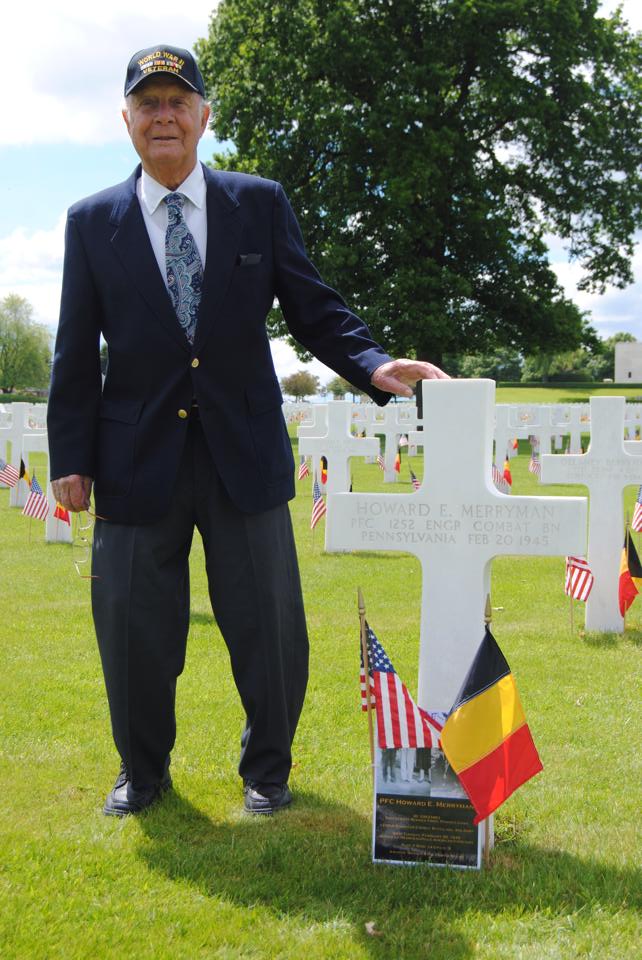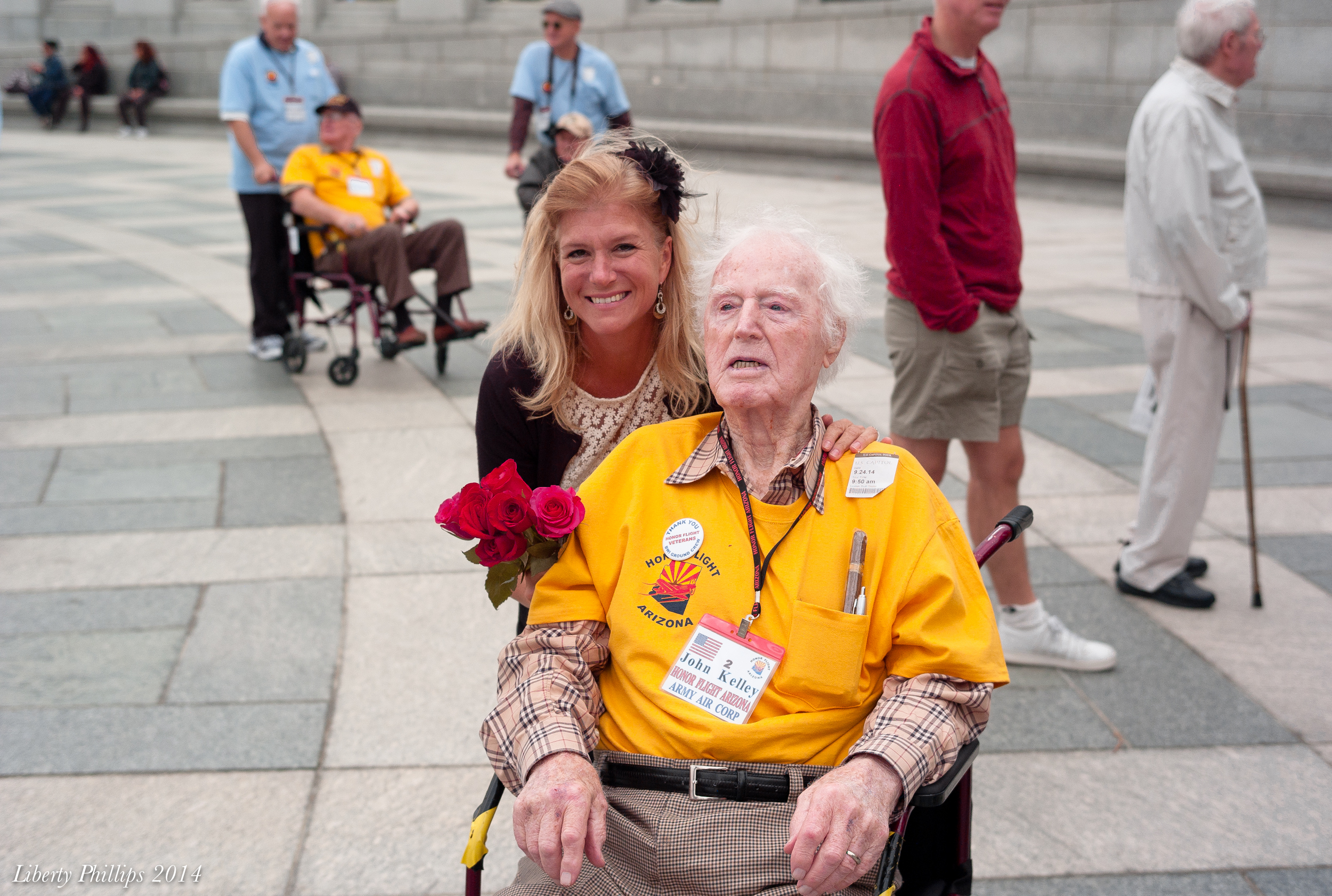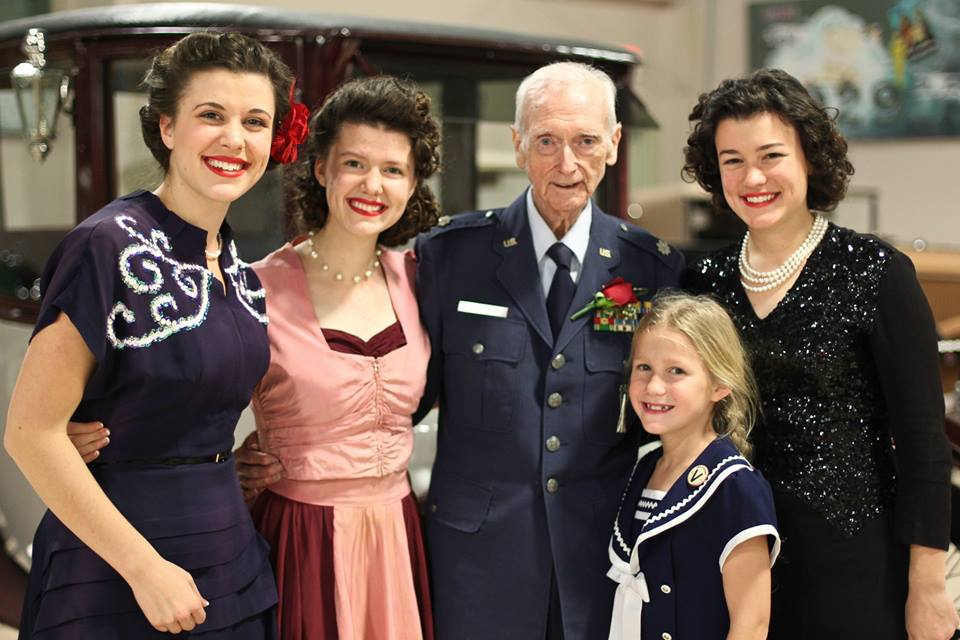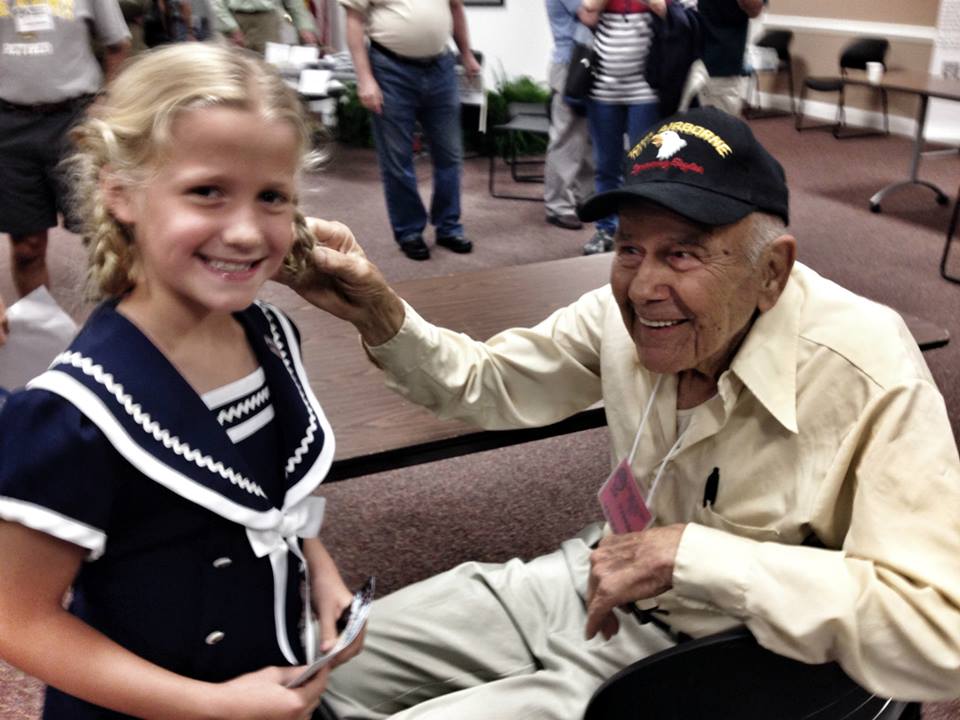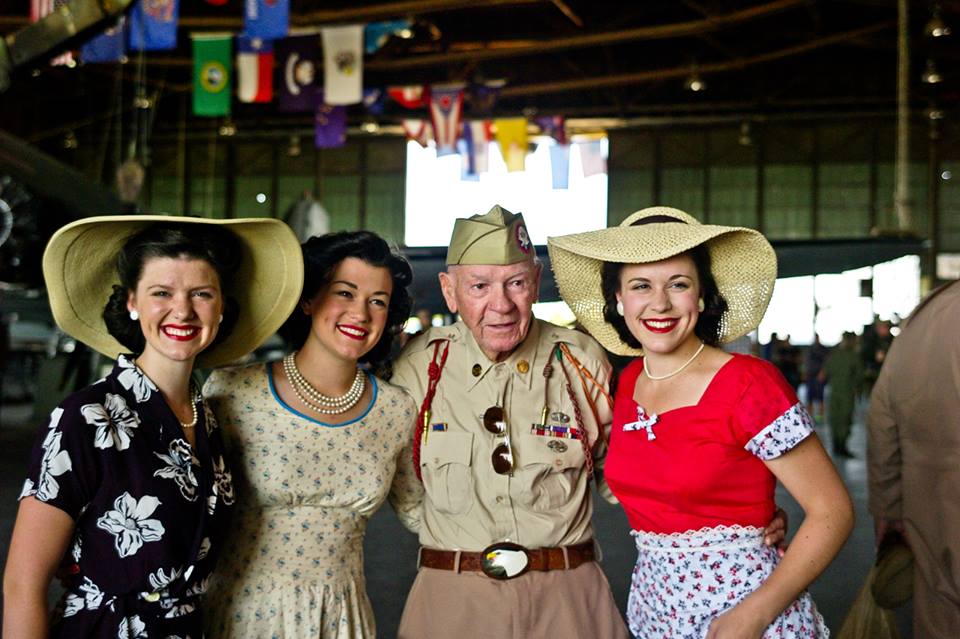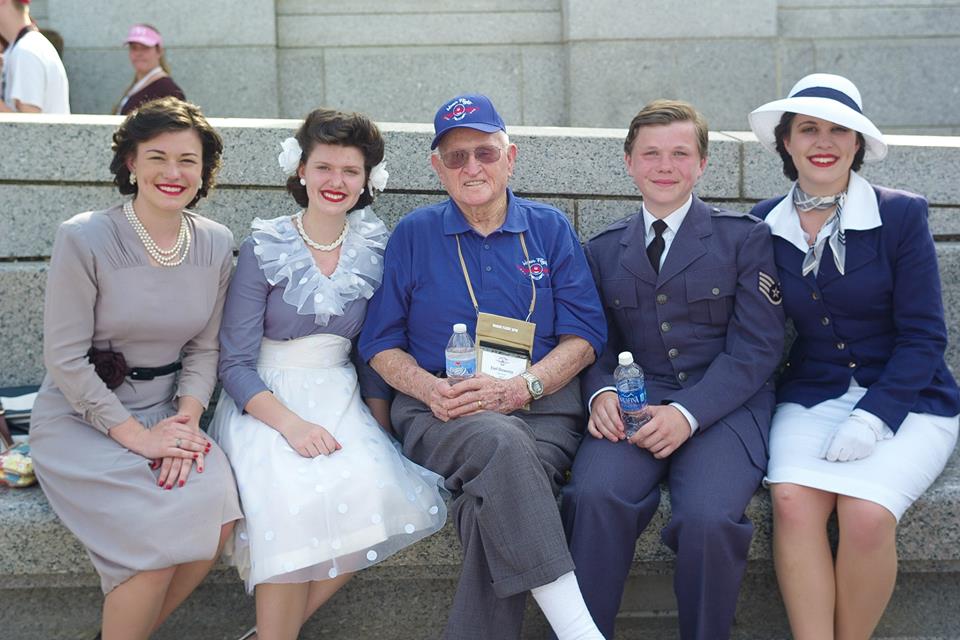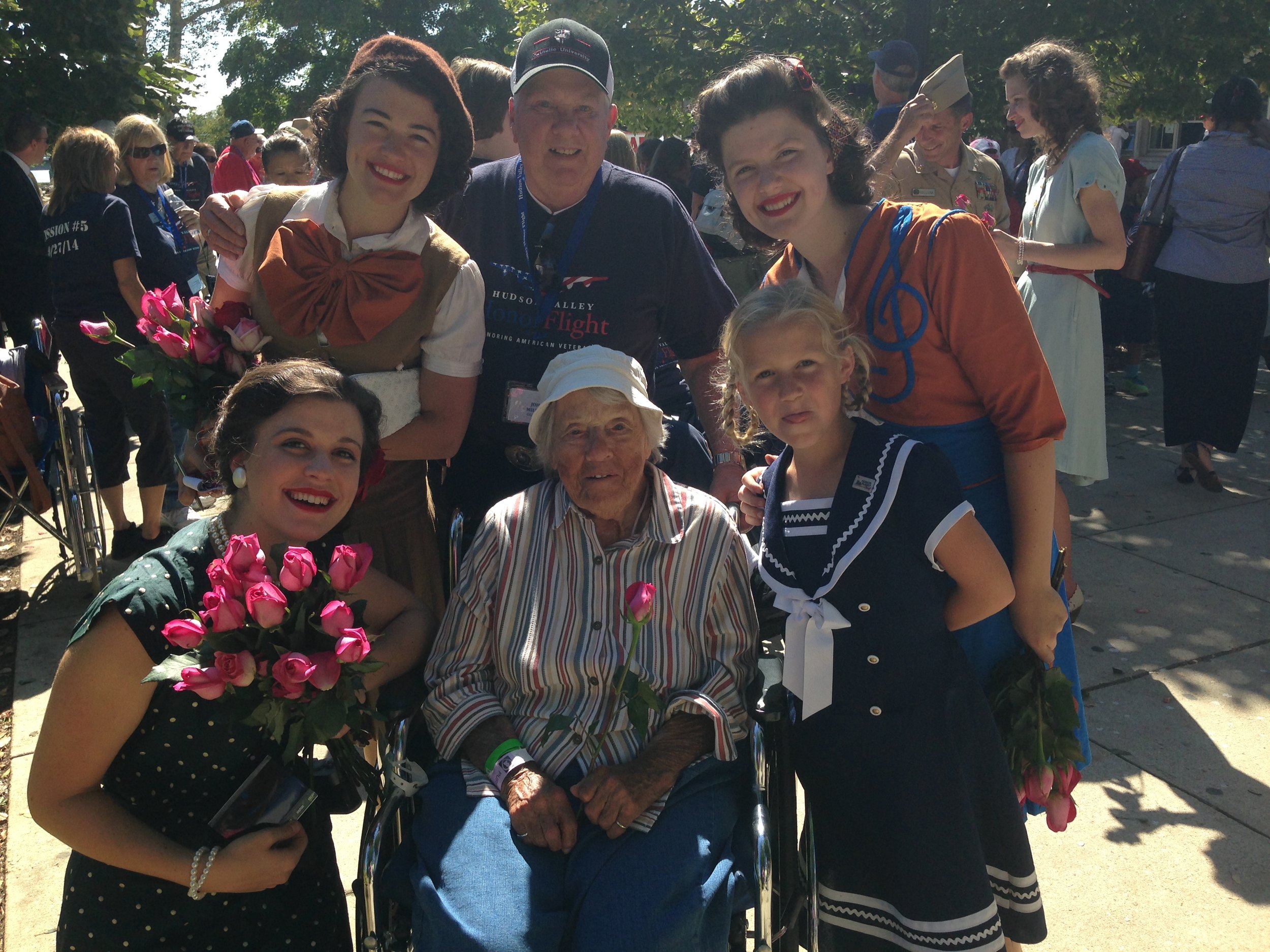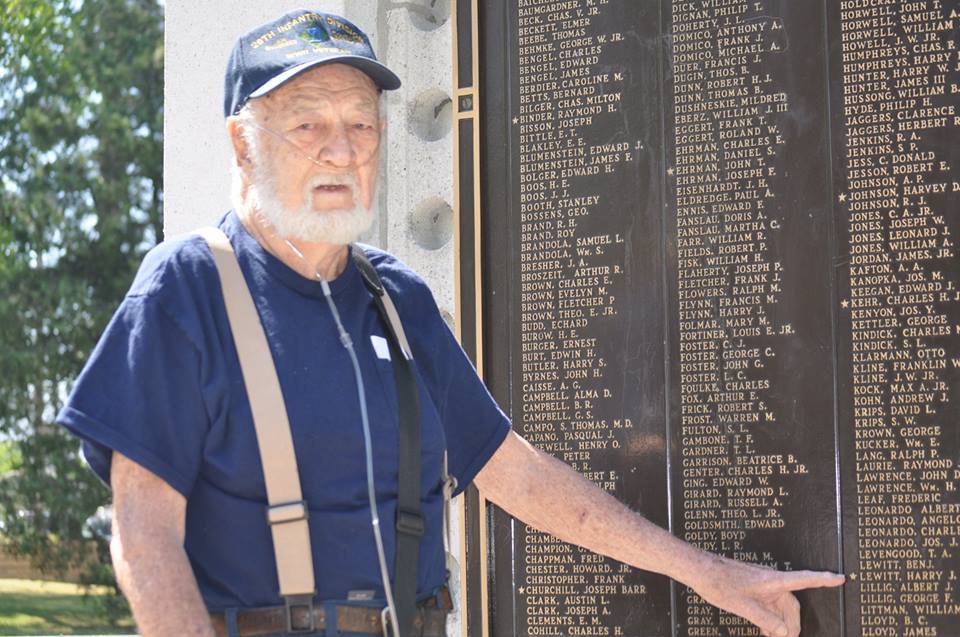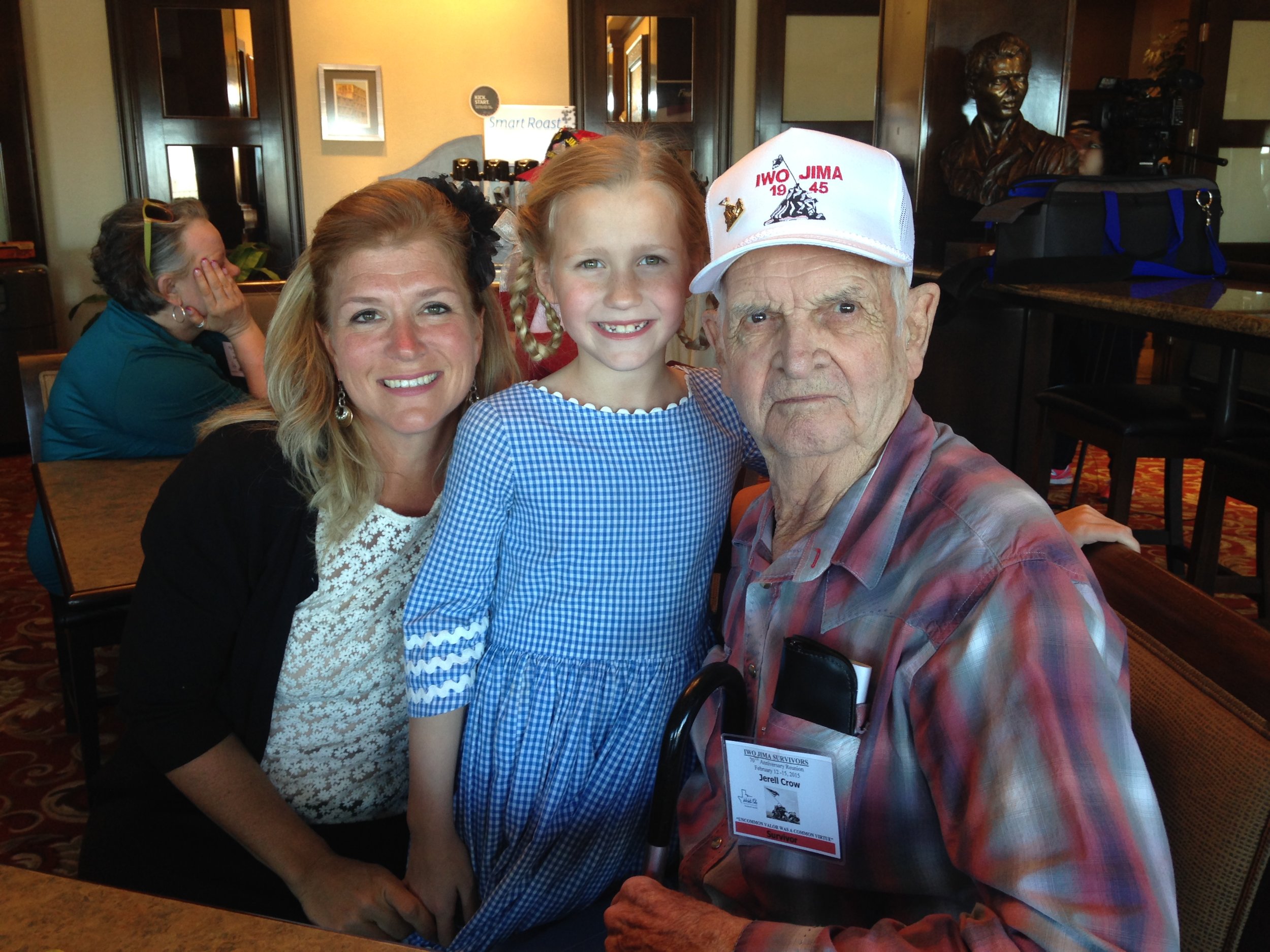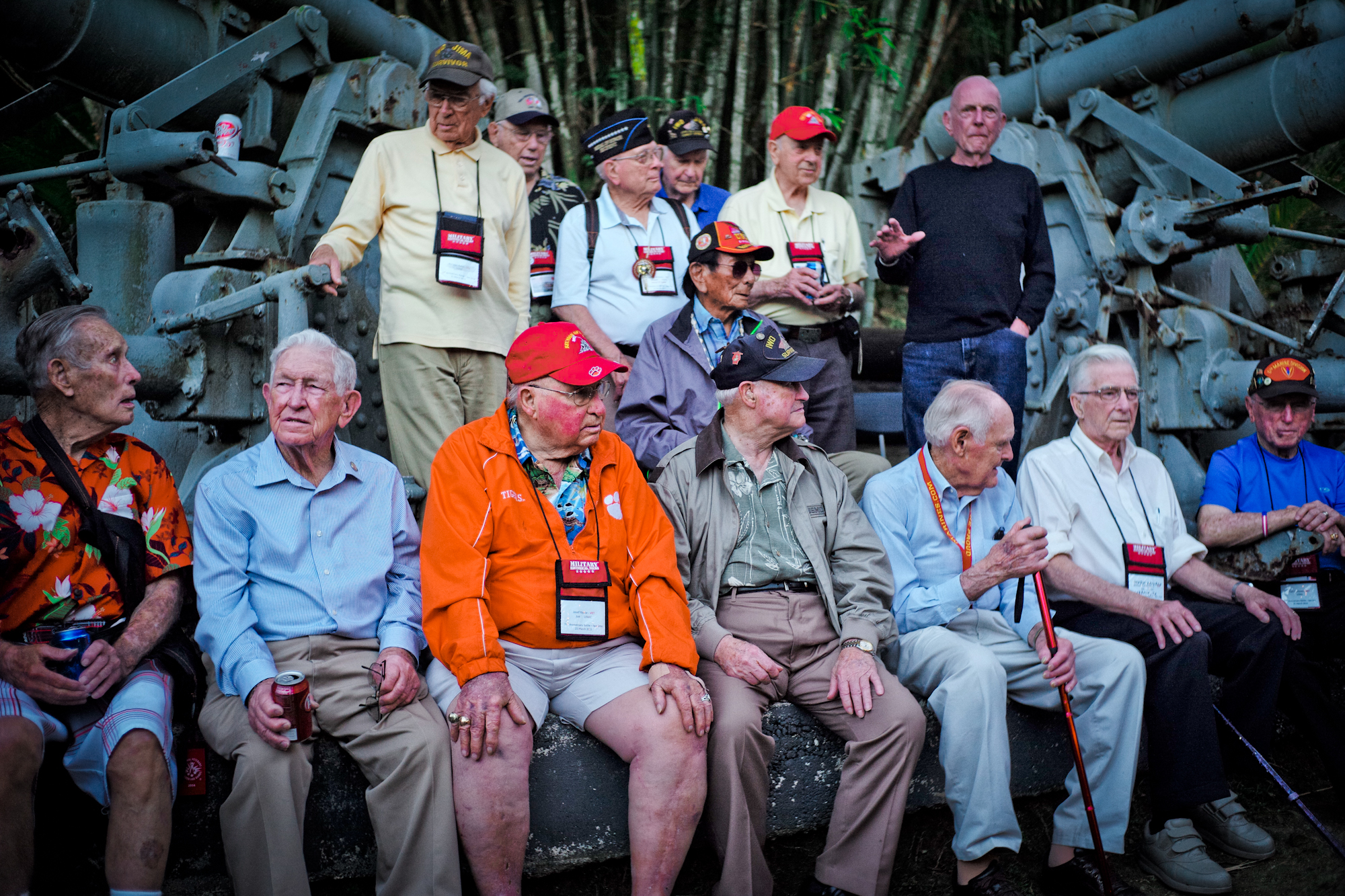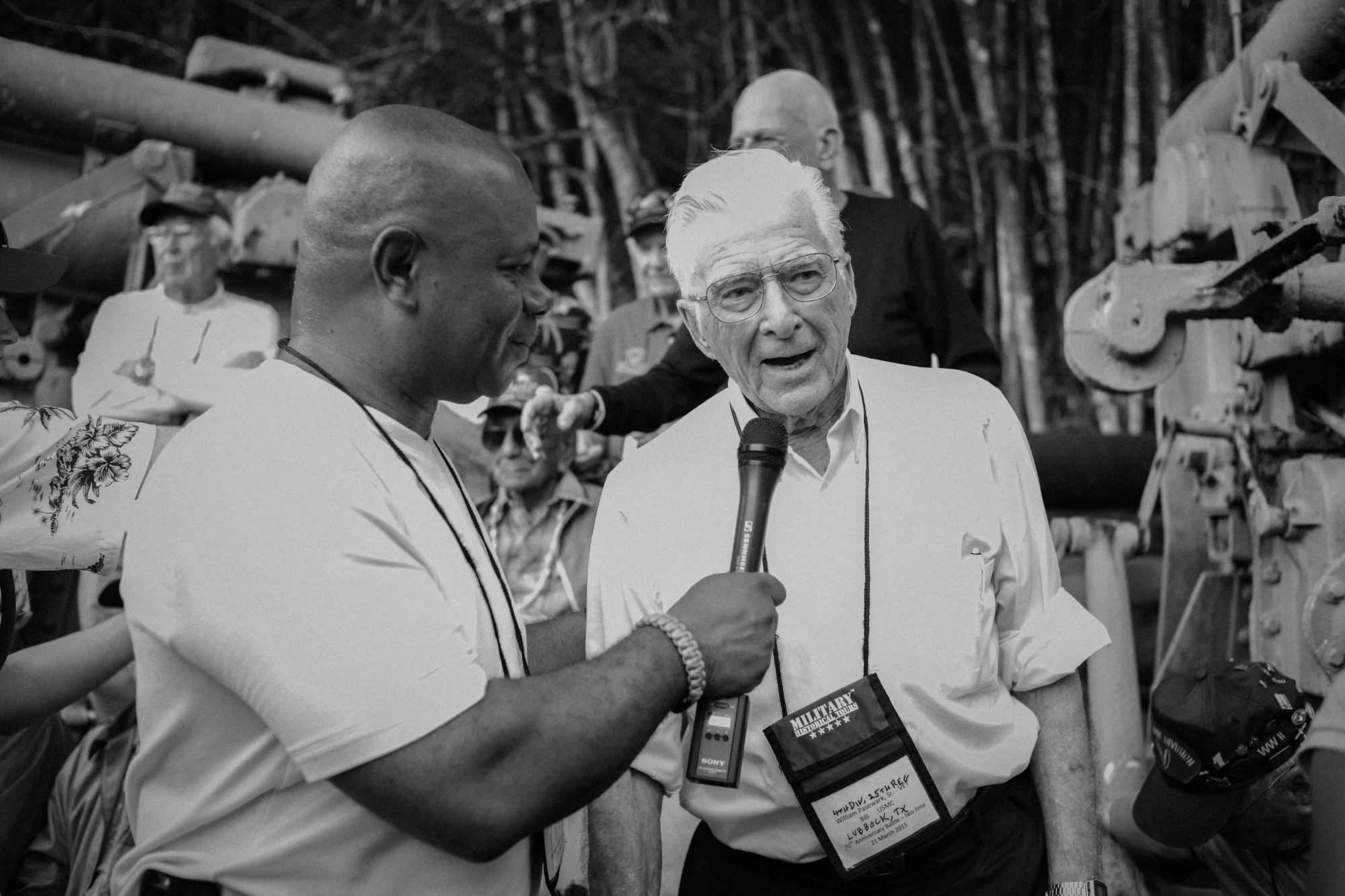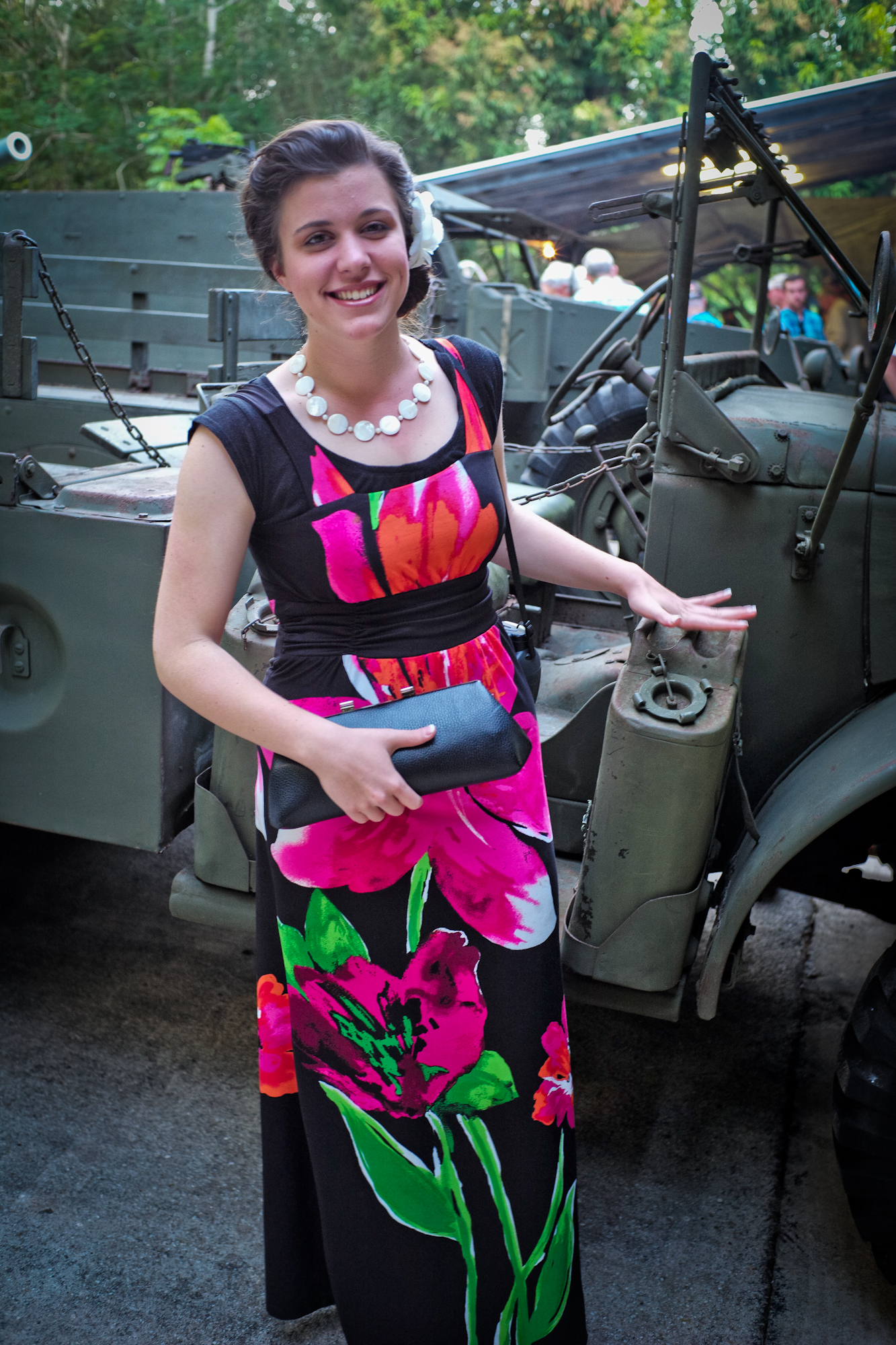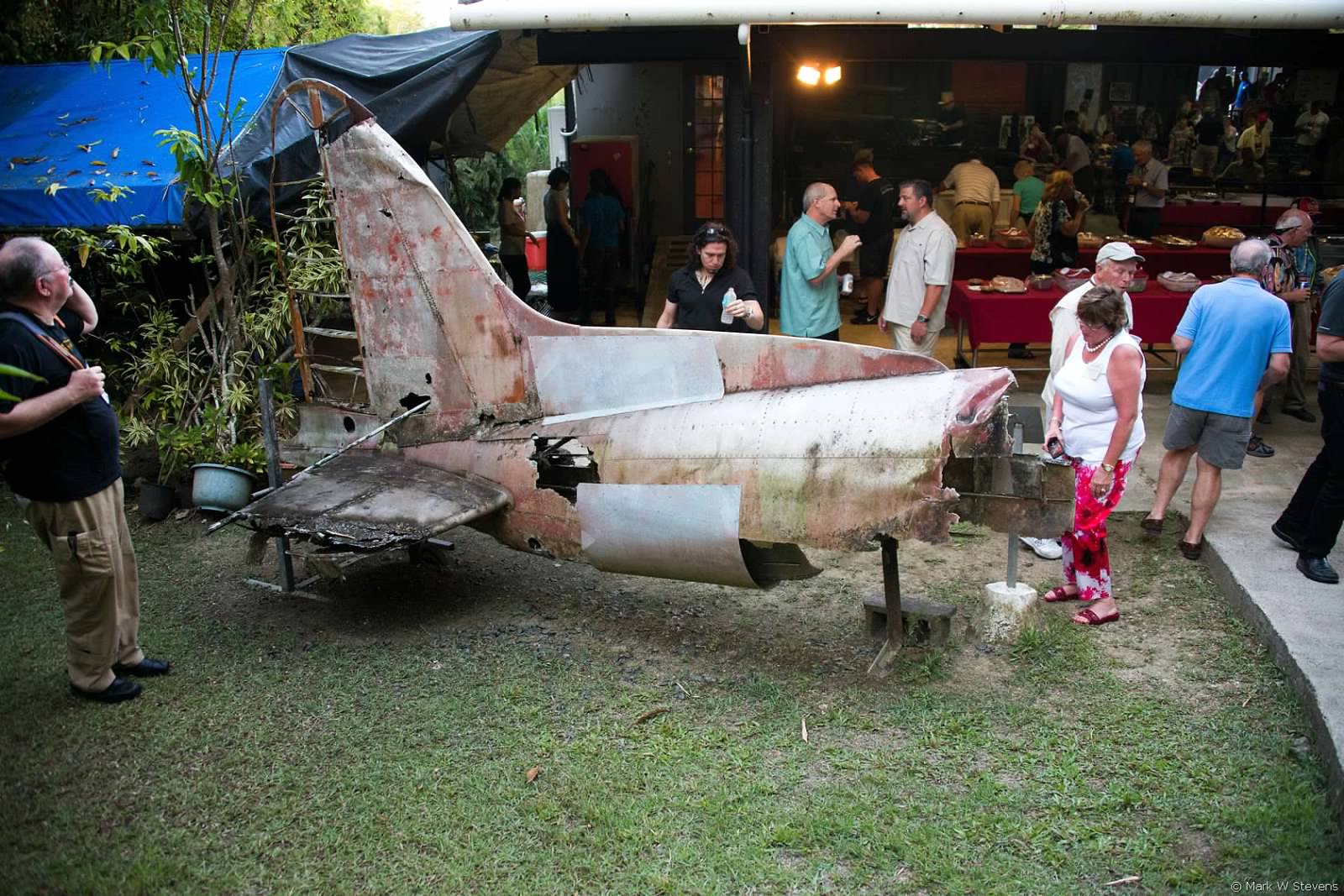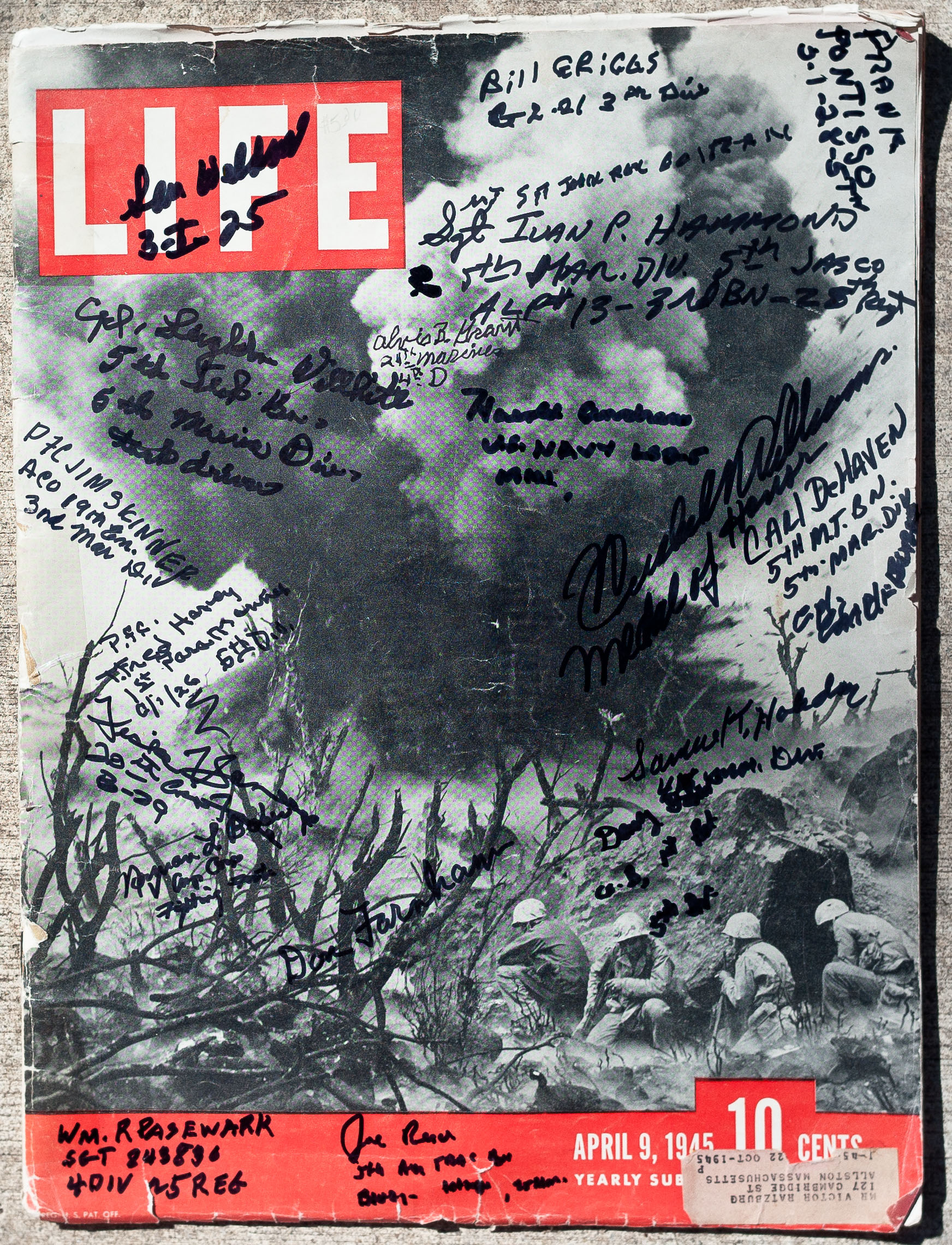Always Kiss Goodnight: A Story for Valentine's Day
/Marvin and Irene Kanter’s love story is one of my favorites. I came across it 10 years ago while searching for local WWII vets my sisters and I could invite to the first function we ever decided to host. It was to be a grand dinner at a classic car museum in San Marcos with special guest, Maurice Renaud son of the wartime mayor of Sainte-Mere-Eglise, France.
I somehow managed to find Marvin’s address and sent him an invitation with an extra note saying I hoped he’d attend (his movie star looks might have encouraged us just a bit to reach out). Happily to our surprise they accepted. The couple was everything and more. Marvin was even better looking and more charming in person, and Irene was absolutely fabulous with a side of spunk. She had been the one to propose to Marving back in 1947, and time had not dimmed that quality.
"If you see a good looking man in a black sports coat, watch out. He is Navy all the way." - Irene Kanter declaring to an Army veteran
Irene passed away shortly after that dinner, but Marvin stuck around for a few more years. Their love story never gets old. Sweet and simple. Long lasting. No doubt they put the work in to make it so.
I sometimes wondered if the movie Anchors Away written based off of their meeting.
Yours to decide.
Always Kiss Goodnight
Helen Anders American-Statesman Thursday, Feb. 21, 2013 Mr. Kanter at our 2014 Veterans Dinner.
It was Halloween night 1944, and a new student at the University of Texas, Irene Wolfson, had a date to a Longhorns football game. Told a blue norther was coming in, but not knowing quite what that was because she’d just arrived from Florida, Irene dressed smartly in a one-button suit with a yellow angora sweater.
“I go out to get in the car,” Irene recalls, “and driving is this sailor with coal-black hair and a fantastic smile.” That, however, was not Irene’s date, although her date was also in the car. The sailor, Marvin Kanter, on shore leave from the Navy, had a date of his own. Still, during the evening when it became clear that Irene had under-dressed for the norther, he lent her his pea coat. The next day, Marvin left to catch a ship out of San Francisco.
“All the way to California, I was picking yellow angora off my pea coat,” he says. His memory of Irene stuck with him just like the angora, and when he was back in Austin — two years later, after World War II had ended — he tracked her down for a date. Then he went home to Missouri and she to Florida, but they corresponded. Irene’s mother saw his picture in her daughter’s room and instantly disapproved.
“He has a weak chin,” she tsked. Undeterred, Irene proposed to Marvin when they got together one weekend in 1947.
“What are your future plans?” Marvin asked Irene, who quickly answered: “I plan to marry you and settle down.” In 1949, they did just that, opting to move to Austin, where Irene quickly landed a job with a fabric store and Marvin worked for a pharmaceuticals wholesaler.
“I don’t think anyone expected the marriage to last,” Irene muses. But here they are, 64 years later. Irene wound up teaching school, then becoming an administrator, serving as assistant principal of Anderson High School for 20 years. Marvin took a job with the Texas Railroad Commission and spent 34 years of weekends officiating at football games, many of them attended by Irene and their daughter, Shelly.
“Remember that time we put hotdog wrappers on our feet to keep warm?” Shelly remembers, and both her parents laugh.
Mr. and Mrs. Kanter at our 2014 Veterans Dinner.
Now retired, Marvin and Irene take a swim in their pool at exactly 4 p.m. every day (unless it’s too cold) and follow that up with a 5 p.m. cocktail hour. They may be out of the business world, but they’re far from idle. They work from time to time as extras in movies shooting in Austin — in fact, they enjoyed a decent amount of screen time behind Sandra Bullock in a restaurant scene in “Miss Congeniality” — and they travel relentlessly, heading out for a tour of interior Alaska just four weeks after Irene had hip surgery. Talking about all this, they grin at each other like newlyweds.
“We have a lot of fun together,” Irene says.
“We laugh a lot, and we try to stay young,” Marvin says. “And whether the day has gone smooth or rough, at the end of the day, we kiss each other.”
“Sometimes it’s hard when you’ve had a fuss,” Irene says, “but we do.”
http://www.statesman.com/lifestyles/always-kiss-good-night/3rPiyfI7ktv4v9tooYr2RN/

